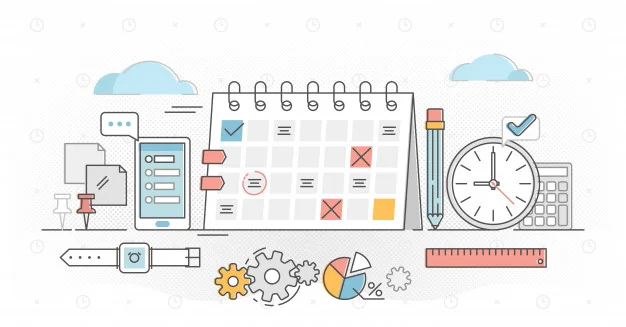10 Study Tips While Battling Mental Health Problems
February 21, 2020
Nur Hafiza Abu Bakar
Keeping ourselves focused while studying requires a lot of motivation and determination. At times, we would often procrastinate to get all assignments done. Student life can be extremely overwhelming for some and it can take a lot of time to keep up with the pace.
When you’re suffering from mental health distress, things can get even more difficult for you to control. It may affect your performance and daily routine that you have to do as a student. We’ve also seen many growing and worrying cases regarding mental health issues among students in Malaysia.
If you’re one of the many who are going through this battle, you’re not alone. You might find it hard to get the encouragement you needed. As a student, it is really important to be aware of your emotional and psychological state. Getting help and a little support can elevate you up to another level, and that’s already good enough.
College life is highly competitive and everyone wants to do the best. The American College Health Association shared that over the past year, 87% of college students felt overloaded with the work they had, 66% suffered from anxiety, 56% thought they didn’t have any hope left and 13% had suicidal tendencies.
Although the data was retrieved from the US demographic, mental health is a globalised issue and can be understood similarly.
Here we are providing you with some practical study tips you can use and practise while fighting against your mental health problem. The list below can be helpful to you, however, please always remember to seek out professional help and therapy first.
1. Schedule your tasks

There are many ways on how you can set a schedule to your work, assignments and projects. You can have a planner and write it down manually.
If you don’t really fancy having an extra small book to carry around, you can also use your phone. Google Calendar is a practical way to keep yourself reminded of the things you have to do. It only takes a few taps on your phone to set the reminder.
2. Install an app to keep you out of distractions

We can admit that the internet is the master of distraction that makes us spend too much time doing aimless browsing on our phone. How do we stop ourselves from this? Some students can effortlessly turn off their phone, but some just can’t stop themselves.
There are so many applications we can use to help us focus and block from this sort of distraction. The best one available and mostly used by students is Forest, available both on Android and iOS.
3. Have your own study buddies

It’s important for you to have the right people to spend time together in college. If you can find a group of friends and have them become your study buddies, it can be fun and help you keep motivated. It can also be a good way to exchange opinions, notes, ideas and some in-depth discussion on your studies.
4. Create flashcards and mindmaps

Image source: Brainscape
Every individual has their own style of learning. There are three reasons why flashcards seem to work on most people in their studies.
First, it helps our mental faculty to remain active and engaged. Second, our metacognitive function would be fully used for us to do constructive comparisons to what we keep on our flashcards. Third, flashcards are good for us to learn, remember and repeat conveniently as the cards are often stacked loosely.
5. Find your own comfortable study space

Your study location heavily influences how effective your study can be. Some may prefer studying in their own room, not wanting any outer distractions. There are also some who prefer studying at different locations, which is what we call nomadic study.
There are many places where we can call the best study locations, the most common one would be the library. Other places can be cafes, book stores and study lounges.
6. Discover any activities that can calm you down

In other words, fulfil your hobbies! If you can’t focus on your studies, spend some ‘me time’ by doing what you like. This way can make yourself if not fully, but a tad better. You can Netflix and chill, watch your favourite series or movies to cramp in some leisure time in between your studies.
If sleeping can calm you down, you can take a nap for a while before continuing your tasks. A study discovered that daytime naps can help improve alertness, creativity, imperception, stamina, motor skills, reduce stress and more.
7. Listen to music that helps you

With different music genres available today, we have at least one or two genres that we often listen to the most. It can be pop, EDM, hip hop, rock, jazz, folk music or classical. You can benefit from your favourite music to help boost your focus and at the same time, improve your mental health condition.
Listening to music can lead to different effects on your mood and this also depends on the type of music. Spend some time listening to your favourite music to enliven yourself from any distress.
8. Get enough sleep

Your brain needs between 7 to 9 hours of sleep per night for you to function properly during the day. When we don’t get enough sleep, we tend to lose our focus so easily. Sleep problems are common for those who suffer from mental illness like anxiety, depression and bipolar disorder.
Try to sleep and wake up at the same time every day, this way you can reset your biological body clock. If you already have sleep problems, avoid taking long naps in the afternoon as it might automatically affect your sleeping time. If you stay active throughout the day, your body will get tired and let you bring yourself to sleep at night.
9. Find out your weak spots

Everyone has their own weak areas in studies. It’s not easy to recognise your own weaknesses and even strengths. It can take up to years before you can finally realise what you’re good and bad at. If you have friends or family members who can give you advice, they might be able to notice your weakness better than you.
Take a careful look at your study patterns, how do you usually study? Take note on the amount of time, how long does it take for you to cover one topic. If you have difficulty understanding your lecturers in class, you can do your own revision in advance. Remember that every individual is different, you might have to make more efforts than other students, but it doesn’t matter as long as you do your best.
10. Be active, physically

You don’t really have to attend gyms every day and do extreme exercises. You can spend time 3-5 times a week to work out or jog after finishing all the classes. It doesn’t have to be that long.
There are many benefits of exercise for mental health. This is because while you’re physically engaging your body with activities, your brain stimulates chemicals that can enhance your mood as well as the two parts in your brain that are responsible for memory and learning.
Kickstart your education in Malaysia
We'll help you find and apply for your dream university
You might be interested in...
- EdUHK Wins Grand Prize at iCAN 2024 Achieves the Best Performance among Hong Kong Universities
- Sunway University Ranked Malaysia's No. 1 Private University in 2025
- A Sunway University Student's Journey from Cerebral Palsy to Graduation
- APU Dominates the 2024 Private Education Excellence Awards with Dual Wins
- The Young & the Wired: How Youth are Redefining the Digital Era?
- Promoting Inclusivity at Malaysian Universities: Tips for Malaysian and International Students
- Taking IELTS test in Malaysia: Tips, Tricks, and Key Info
- Sunway University Tops Times Higher (THE) Rankings in Malaysia
- Discovering Academic Opportunities and Pathways at APU after SPM and IGCSE
- Asia Pacific University's (APU) Innovative Initiatives Prepare Students for Industry 4.0
 +60142521561
+60142521561





